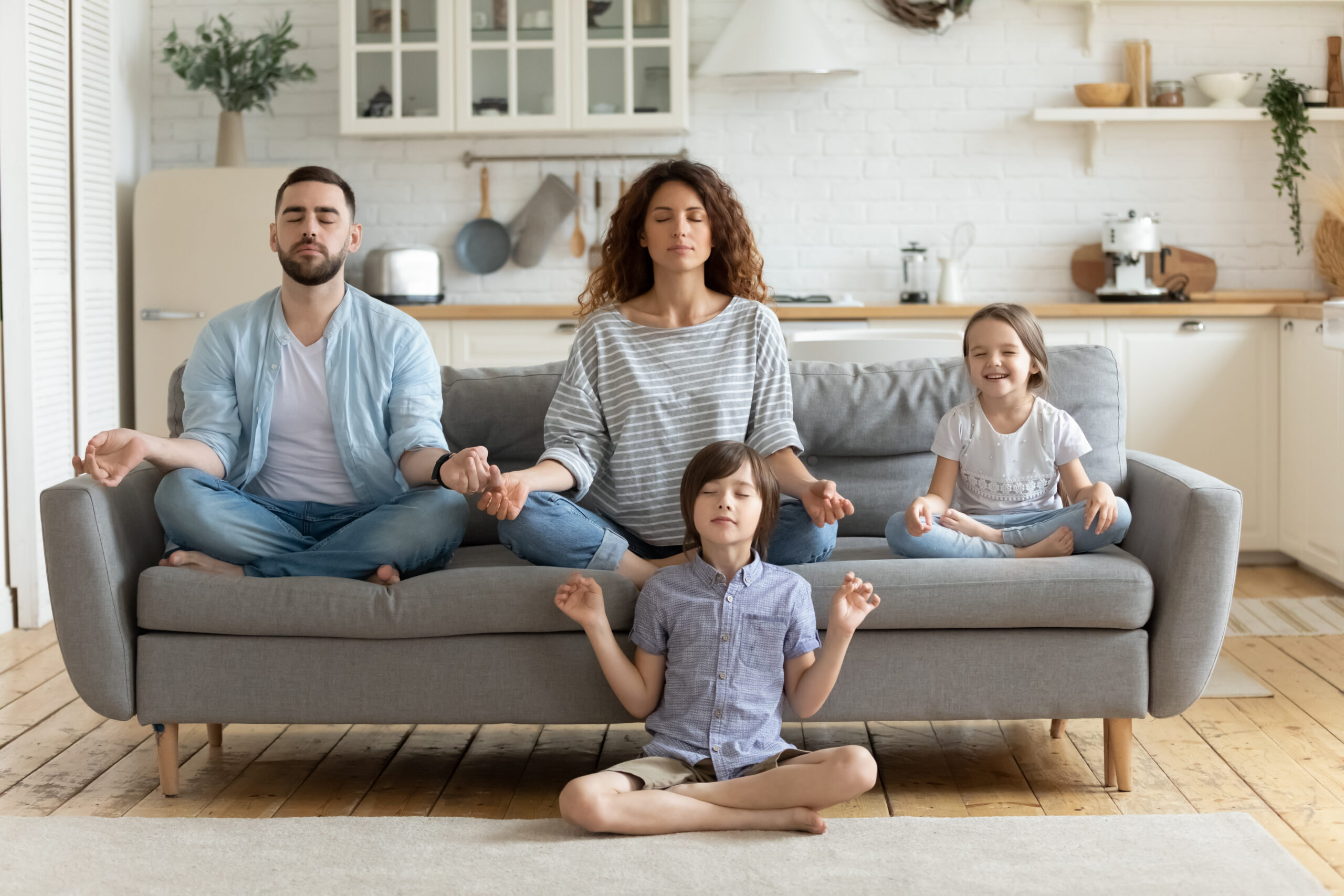Picture this: You come home after a long day, exhausted and ready to unwind. But instead of walking into a peaceful retreat, you’re greeted by a pile of laundry, dishes in the sink, and stacks of unopened mail on the counter. Suddenly, your shoulders tense up, your mood shifts, and that much-needed relaxation feels impossible. Sound familiar?
You’re not alone. Science confirms what we’ve all instinctively felt—clutter isn’t just an eyesore; it’s a stressor. The state of our surroundings has a powerful impact on our mental and emotional well-being. But why does mess stress us out? And more importantly, how can a clean home help us reclaim our peace of mind? Let’s dive into the psychology behind cleanliness and why maintaining an organized space is more than just a chore—it’s an act of self-care.
The Mental Load of Clutter
Think of your brain like a computer. When too many programs run at once, everything slows down. Clutter does the same to your mind. According to studies, excess mess bombards our senses with unnecessary stimuli, making it harder to focus and process information. That’s why it’s difficult to relax when your living room looks like a storage unit—it’s visual noise that keeps your brain working overtime.
A study from Princeton University Neuroscience Institute found that physical clutter competes for our attention, reducing our ability to focus. This explains why a messy workspace can make it harder to concentrate, and why you might feel overwhelmed just looking at a chaotic room. Simply put, clutter clouds your mind and fuels stress.
Mess, Stress, and Anxiety: The Clutter Connection
Ever notice how a cluttered home makes you feel more anxious? There’s a reason for that.
Psychologists have linked messy environments to increased levels of cortisol, the stress hormone. A study published in Personality and Social Psychology Bulletin found that women who described their homes as “cluttered” had higher cortisol levels and reported feeling more depressed compared to those who saw their homes as “restful.”
This happens because clutter creates a sense of unfinished business. Every disorganized pile is a reminder of tasks left undone, triggering a mental to-do list that never stops running. No wonder it’s hard to relax! The irony? Many people avoid cleaning because they feel overwhelmed—yet avoiding it only adds to their stress.
The Emotional Weight of a Messy Home
Clutter isn’t just about misplaced objects; it’s often tied to deeper emotional baggage. Holding onto items “just in case,” keeping things for sentimental reasons, or feeling guilty about letting go can create a physical and emotional burden. The longer we put off decluttering, the more overwhelming it becomes, trapping us in a cycle of avoidance and stress.
Have you ever noticed that cleaning can actually feel therapeutic? That’s because decluttering gives us a sense of control. In a world where so much is uncertain, tidying up our space provides an immediate and tangible feeling of accomplishment. A clean home creates a sense of calm, while a messy one can feel like emotional quicksand.
Clean Space, Clear Mind: The Psychological Benefits of Tidiness
A well-organized space isn’t just about aesthetics—it’s about mental clarity, emotional balance, and overall well-being. Here are some of the key benefits of keeping your home clean:
1. Reduces Stress & Anxiety
A clutter-free environment helps lower cortisol levels, making it easier to relax and unwind. Less mess = less mental chaos.
2. Boosts Productivity & Focus
Studies show that organized spaces improve concentration and efficiency. Whether you’re working from home or managing daily tasks, a tidy space can help you stay on track.
3. Improves Mood & Mental Health
A clean home can lift your spirits. Research has found that people with cleaner living spaces report feeling happier and more energetic.
4. Encourages Better Sleep
Messy bedrooms can contribute to restlessness. A neat, peaceful space signals to your brain that it’s time to wind down, leading to improved sleep quality.
5. Enhances Creativity
While some believe that mess sparks creativity, too much clutter can actually stifle it. A clean space fosters a clearer, more open mind, allowing new ideas to flow more freely.
The Science of Decluttering: How to Approach It Effectively
Decluttering can feel overwhelming, but breaking it down into manageable steps makes all the difference. Here are some scientifically backed methods to help you get started:
1. The 5-Second Rule
If you pick up an item and can’t decide within five seconds whether to keep or toss it, you probably don’t need it. This prevents hesitation and decision fatigue.
2. The KonMari Method
Marie Kondo’s famous tidying method encourages keeping only items that “spark joy.” If something doesn’t bring you happiness or serve a clear purpose, it’s time to let it go.
3. The 20/20 Rule
If you’re unsure about getting rid of something, ask yourself: Can I replace it in 20 minutes for less than $20? If yes, then you don’t need to keep it.
4. The Three-Box System
Label three boxes: Keep, Donate, and Trash. As you declutter, sort items accordingly. This simple system prevents indecision from stalling progress.
How a Clean Home Affects Relationships
A clean home doesn’t just benefit you—it also improves your relationships. Studies show that couples who argue about housework frequently have higher stress levels. When clutter is reduced, arguments over chores decrease, creating a more peaceful home environment.
For families, an organized home teaches kids valuable life skills. Children who grow up in tidy environments tend to develop better organizational habits and time management skills, setting them up for success in adulthood.
How to Create a Cleaner, Calmer Home (Without Feeling Overwhelmed)
If you’ve been avoiding tackling your messy home because it feels like too much, don’t worry—you’re not alone. The key is to start small. Here are some simple, practical steps to reclaim your space (and your peace of mind):
1. Start with One Small Area
Instead of trying to tackle everything at once, focus on a single space—your kitchen counter, your nightstand, or even just one drawer. Small wins create momentum.
2. Use the “One-Year Rule”
If you haven’t used or worn something in the last year, chances are you don’t need it. Donate, recycle, or toss it!
3. Set a Timer
Dedicating just 10-15 minutes a day to tidying up can make a huge difference over time. Cleaning doesn’t have to be an all-day event.
4. Adopt the “One In, One Out” Rule
For every new item you bring into your home, remove one. This helps prevent clutter from accumulating in the first place.
5. Create Cleaning Habits
Simple routines like making your bed every morning, doing dishes immediately after meals, or tidying up before bed can keep mess from spiraling out of control.
6. Call in the Pros When Needed
Sometimes, the best way to hit the reset button is to bring in professional help. Deep cleaning services can give you a fresh start and make maintenance much easier.
Final Thoughts: A Clean Home = A Clear Mind
At the end of the day, cleaning isn’t just about having a pretty home—it’s about cultivating a space that supports your well-being. A tidy, organized environment fosters mental clarity, reduces stress, and creates a sense of peace.
So the next time you feel overwhelmed by clutter, remember this: You’re not just cleaning your home; you’re clearing your mind. And if you need a little help along the way, Die Hard Cleaning Services in Tallahassee is here to transform your space—and your stress levels—with expert cleaning services. Because when your home shines, so do you.






